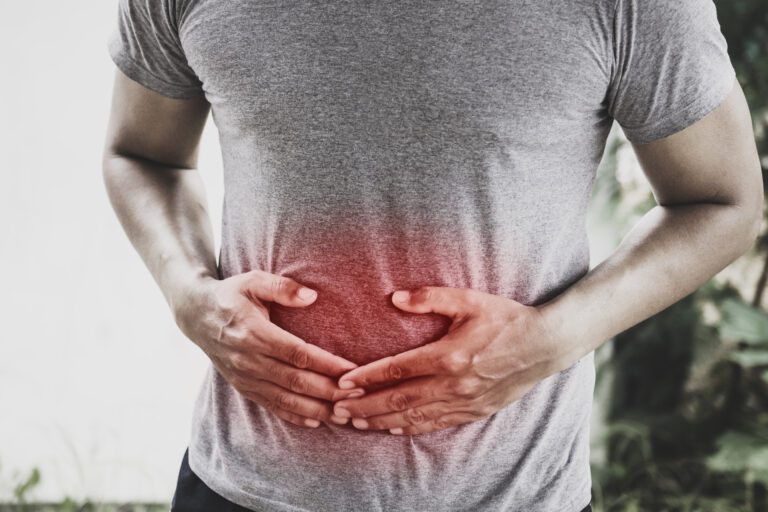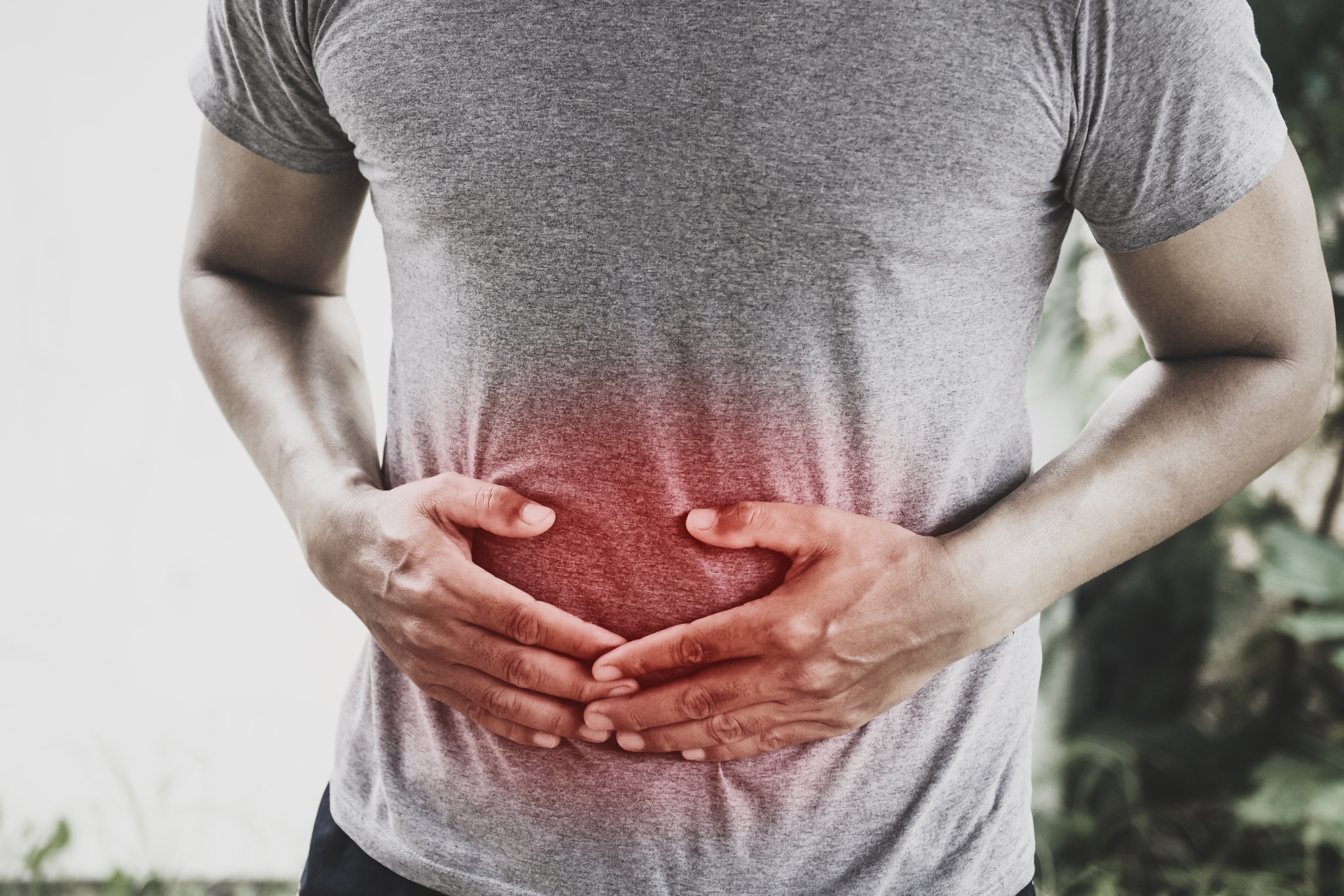
[ad_1]

With the gnawing emptiness that follows a skipped lunch, or a day of fasting in preparation for a big meal, you might wonder if that rumbling stomach of yours is actually capable of shrinking with hunger. After all, it sometimes feels like it.
The idea that our stomachs can shrink is thrown around often, especially in the context of dieting to curb appetite or by medications promising weight loss. Sure, you can lose weight and body fat, but does that mean your stomach has changed sizes, too? To answer this question, understanding how the organ and digestive process actually operates is a good first step.
What Causes Hunger Sensations?
Your stomach is the muscular organ seated in the upper portion of your abdomen. Its main purpose is to act as a temporary storage and processing unit for food on its way through the gastrointestinal (GI) tract.
In the stretches of time when you haven’t yet eaten, the empty stomach is physically contracted. Folds called rugae line its walls, resembling an accordion. These folds are ready to flatten out and expand whenever the stomach has to relax and make room for incoming meals.
One way we can see this, says Edwin McDonald, a gastroenterologist and assistant professor of medicine at the University of Chicago, is through computerized tomography (CT) scans.
“The muscle of the stomach actually looks thickened because the stomach is small and contracted, as opposed to thin and expanded with food,” he says.
When we experience physical sensations of hunger, it’s thanks to the release of the hunger hormone ghrelin. This is the hormone that lets our brains know our stomach is empty and requires food, thus making way for the beginning of digestion.
Read more: The Science Behind Why We Get Hangry
How Does the Digestive System Work?
When we actually fulfill our cravings, the digestive process starts in our mouths. It’s when a whiff of a tasty, mouth-watering food sets off extra saliva production: the first step to break down food.
The stomach relaxes and expands to accommodate the incoming load, working like a well-oiled machine to mechanically and chemically break things down further. It stores swallowed air and foodstuffs, produces powerful acids to melt them down, and contracts to physically grind up the food into smaller bits.
Though the stomach can absorb a few substances such as water and medications, the part where our bodies actually absorb most of the nutrients and energy from our meals comes in the small intestine.
Like a factory assembly line moving from one stage to the next, the stomach slowly pushes small bits of the resulting food mixture into the small intestine for further processing – a step called gastric emptying.
Read more: Why Stomach Acid is Super Strong – And Super Important
Can Your Stomach Shrink?
Throughout this process, from fasting to fulfillment, there’s certainly a lot of movement involved. Our stomachs expand as we chow down, then return to their original states once everything has successfully passed onward.
Physically, most adults have about the same stomach size, despite having varying weights. The empty human stomach expands to hold a volume of between 1 to 1.5 liters (4 to 6.25 cups) after the average meal. However, it can actually stretch to accommodate up to 4 liters (about 1 gallon). All in all, it’s a highly flexible muscle.
Some surgical procedures remove part of the stomach, restricting the amount of content it can handle. Other procedures, McDonald says, involve suturing the stomach from the inside and making it physically smaller that way.
Read More: Is the Mediterranean Diet Healthy?
Does Hunger Cause Stomach Shrinkage?
However, natural processes such as hunger are not enough to shrink an already incredibly stretchy organ any further. In fact, the production of ghrelin increases when we are fasting, to promote our appetite and encourage us to eat more -– a sort of protection against perceived starvation.
Sometimes, though, when we finally get sustenance after going hungry all day, we ironically might feel full quickly. This isn’t because the actual size of our stomach has changed. The feeling of fullness might come from our gastric organ emptying slower.
“If you look at [the stomach] like it’s a bag, if you can’t put as much in it, then you tend to think that the stomach is smaller. But it’s way more complicated than that, because the stomach also empties. It’s not a completely closed bag,” McDonald explains. “If your stomach is emptying slower, you won’t be able to eat as much. If your stomach is emptying faster, you’re gonna eat a whole lot, even though your stomach may not necessarily be swelling up as big as it would normally.”
This is the principle driving certain weight-loss medications, which target the hormones in charge of stomach emptying and hunger cues.
“They essentially make people eat less by making them feel full a little quicker, but they have no impact whatsoever on the size of the stomach, per se,” he says.
Read More: Recurring Stomach Pain? It Could Be Abdominal Migraines
Healthy Ways to Achieve Satiety
What is satiety? Satiety refers to the feeling of fullness and satisfaction you experience after eating a meal. It’s the sensation that tells you that you’ve had enough to eat and no longer feel hungry.
A host of other factors also account for how we experience satiety, such as level of mindfulness, hunger hormone production, and the kinds of food we consume. Fatty foods, for example, stay in the stomach longer than proteins and carbs do. Not all foods are made the same, therefore not all gastric emptying is made equal either.
To feel full properly, there are plenty of classic practices we can take up, whether it’s staying hydrated or exercising well. McDonald advises folks to keep an eye out for addictive foods, which may lead to overeating, and to focus on putting classic fruits and vegetables on your plate.
Next time you feel famished after a long day, trust that your belly hasn’t actually shrunk. In simplest terms: Think of the stomach as a balloon. It stretches when you blow into it and deflates when you let the air out. But it can go no further than that.
Read More: Forget Dieting. Here’s What Really Works to Lose Weight
[ad_2]